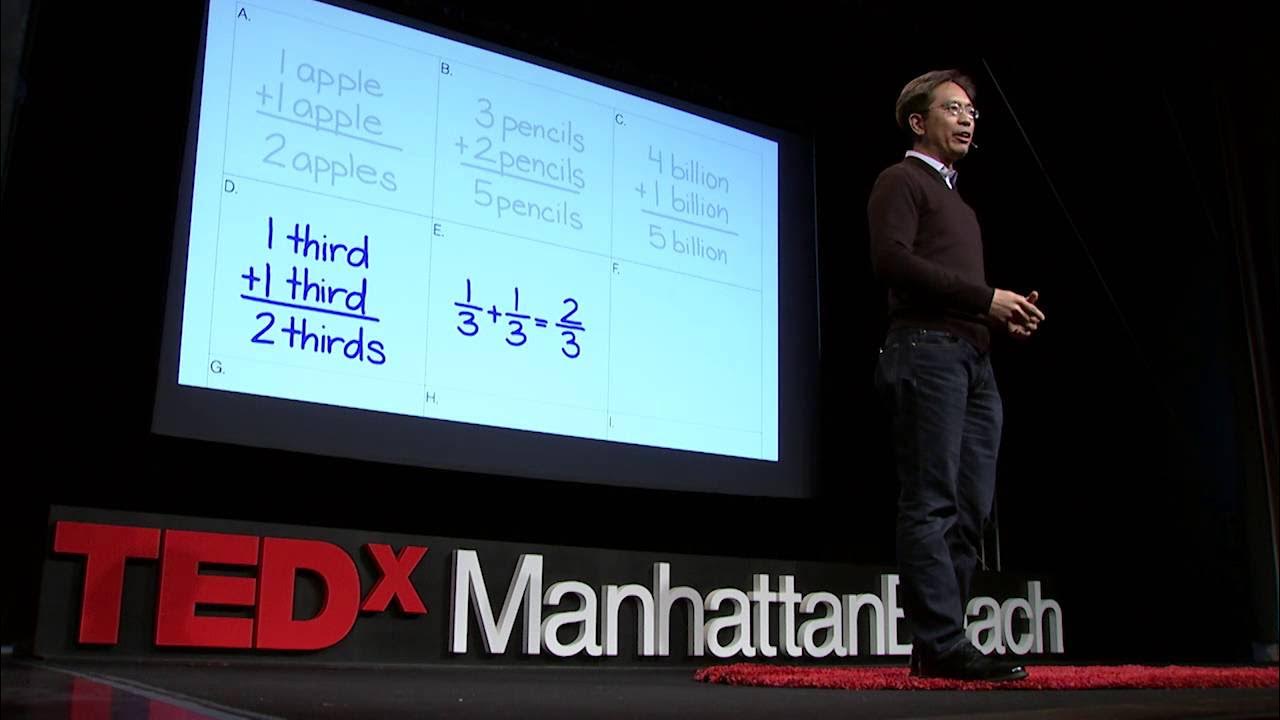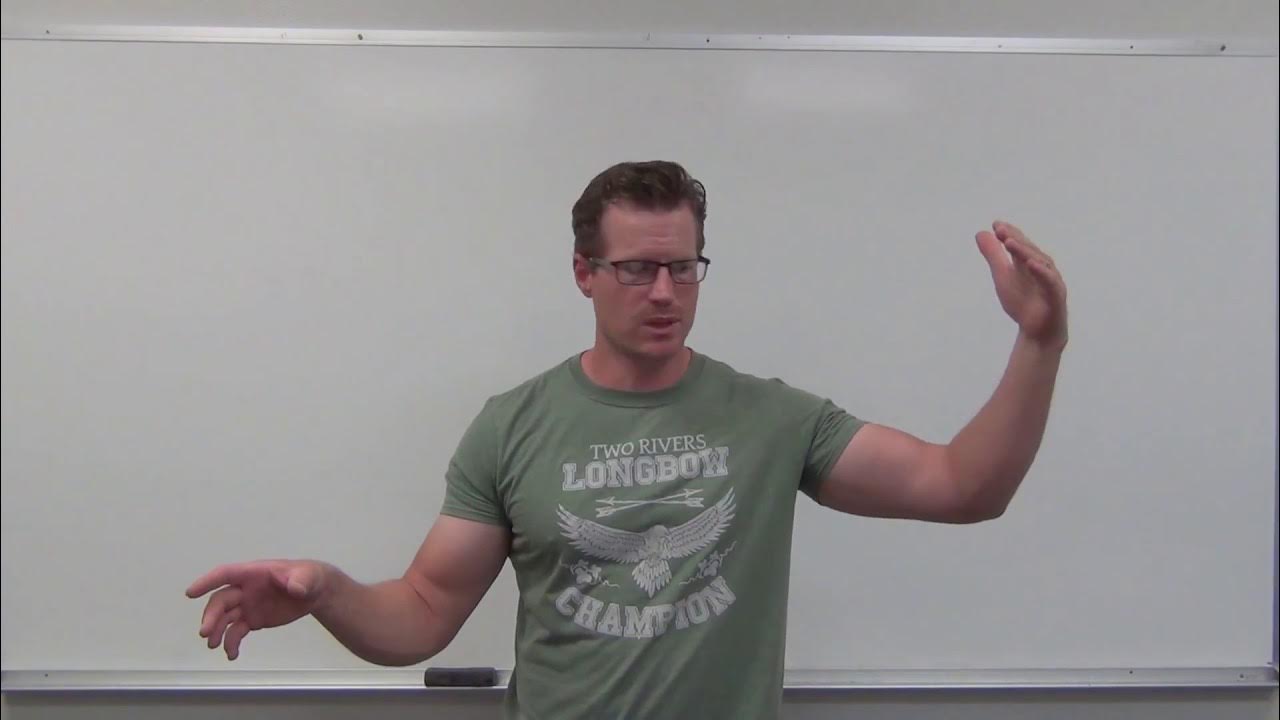Teacher And Pupil Attitude To Maths - The Importance Of Confidence | Maths – No Problem!
Summary
TLDRThe speaker reflects on their journey of teaching Year 6 for the first time, emphasizing the challenges and triumphs of building confidence in students' math abilities. Through personal growth and the use of textbooks, they improved their own mathematical confidence. However, they noticed a broader issue of low confidence in math, particularly among girls and even teachers, which impacts student performance. The speaker discusses a survey revealing low teacher confidence in teaching math, and how this may contribute to students' struggles, highlighting the importance of addressing this contagious lack of confidence in the subject.
Takeaways
- 😀 The speaker taught Year 6 for the first time after years of teaching Key Stage 1, feeling more confident due to personal growth in mathematics.
- 📚 Having access to a good maths textbook helped boost the speaker's confidence in teaching Year 6.
- 💪 Confidence, both in teachers and students, is seen as a key factor in successful maths learning.
- 😔 A conversation overheard by the speaker highlighted the issue of adults passing their own insecurities in maths onto children.
- 📊 A survey of teachers revealed very low confidence levels in their students’ ability to solve calculation problems, with 0% being 'very confident'.
- 📝 Teachers also showed low confidence in teaching formal written methods, reflecting concerns about how this affects student learning.
- 👦 Boys showed more confidence in maths compared to girls, with girls being significantly more anxious about the subject.
- 👩🏫 The speaker questioned whether female teachers were unconsciously passing their own anxieties about maths onto female students.
- ❌ Maths would often be sidelined in the school for other 'more exciting' activities, signaling a lack of prioritization.
- 😬 Many teachers openly expressed their own dislike or lack of confidence in maths, which may negatively influence their students.
Q & A
What motivated the speaker to teach Year 6 after previously teaching Key Stage 1?
-The speaker felt confident enough to teach Year 6 because they had a helpful maths textbook and had worked on developing their own confidence in mathematics.
Why was this week particularly challenging for the speaker?
-It was the culmination of seven years of work for the Year 6 students, and regardless of the outcome, the speaker felt proud of their hard work and growth in confidence.
What conversation triggered the speaker's thoughts on confidence and mathematics?
-The speaker overheard a friend mention that her daughter might not pass her maths GCSE and that it was acceptable because she herself had struggled with maths and hated it.
What concerns did the speaker have when they became a maths leader?
-The speaker was concerned about why children were not confident in maths, even though the teaching looked good. They wanted to investigate whether teacher confidence might be affecting student confidence.
What did the survey conducted by the speaker reveal about teacher confidence in teaching maths?
-The survey revealed that no teachers felt 'very confident' that their students felt secure in their ability to answer calculation problems, and a significant percentage had low confidence in their own ability to teach formal written methods.
What gender differences did the speaker find when they surveyed Year 6 pupils about their confidence in maths?
-Boys had more confidence and believed maths was one of their strengths, while girls showed significantly lower confidence, which concerned the speaker given the predominantly female teaching staff.
What practices in the school did the speaker believe were harming students’ confidence in maths?
-The speaker noticed that maths often disappeared from the timetable when something 'more exciting' was happening, and topics like division, fractions, decimals, and percentages were rarely taught, potentially due to teachers’ own lack of confidence.
How did the speaker relate teachers’ attitudes towards maths to their influence on students?
-The speaker observed that teachers were comfortable admitting they were bad at or hated maths, which they believed transmitted a negative message to students, particularly girls.
What national issue did the speaker believe their observations reflected?
-The speaker believed that the lack of confidence and negative attitudes towards maths, especially among female teachers, reflected a broader national issue of low confidence in maths education.
What is the speaker's ultimate concern regarding the influence of teacher attitudes on students' confidence in maths?
-The speaker is worried that teachers' lack of confidence in their own mathematical abilities is contagious and negatively affects students, especially girls, potentially discouraging them from succeeding in maths.
Outlines

Cette section est réservée aux utilisateurs payants. Améliorez votre compte pour accéder à cette section.
Améliorer maintenantMindmap

Cette section est réservée aux utilisateurs payants. Améliorez votre compte pour accéder à cette section.
Améliorer maintenantKeywords

Cette section est réservée aux utilisateurs payants. Améliorez votre compte pour accéder à cette section.
Améliorer maintenantHighlights

Cette section est réservée aux utilisateurs payants. Améliorez votre compte pour accéder à cette section.
Améliorer maintenantTranscripts

Cette section est réservée aux utilisateurs payants. Améliorez votre compte pour accéder à cette section.
Améliorer maintenantVoir Plus de Vidéos Connexes

Math isn't hard, it's a language | Randy Palisoc | TEDxManhattanBeach

Everything You Need to Know About BTR | How I used Ma'am's videos | AIR 369 | NEET PG INICET NEXT

How to Study for Math (TTP Video 1)

First Year College Roadmap (BTech/BCA)

OPENING SPEECH 24-25

If I Wanted to Make $10,000 as a Student, I'd Do This
5.0 / 5 (0 votes)
